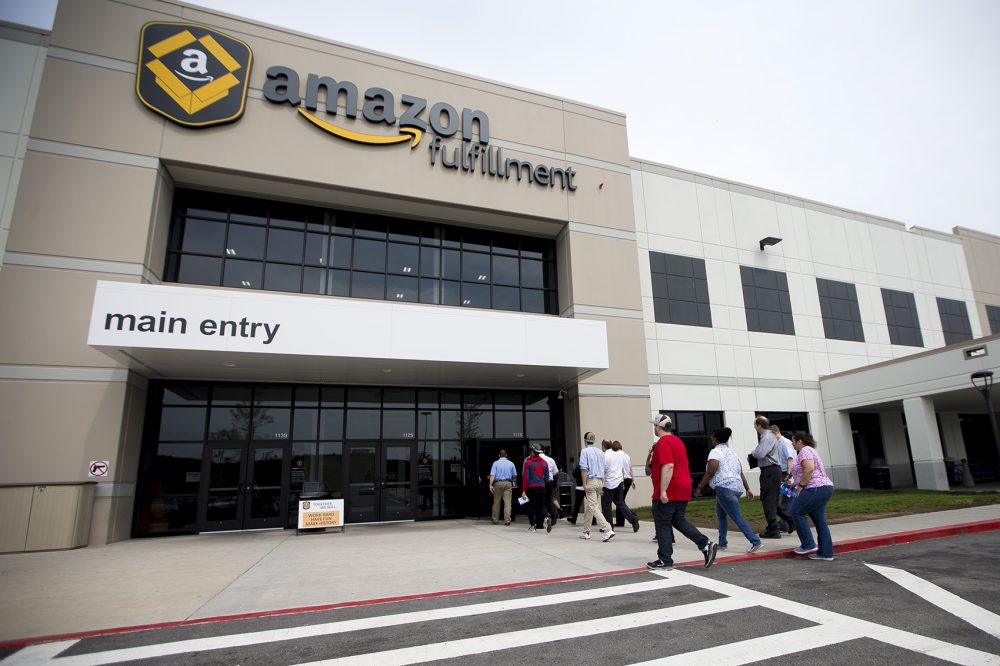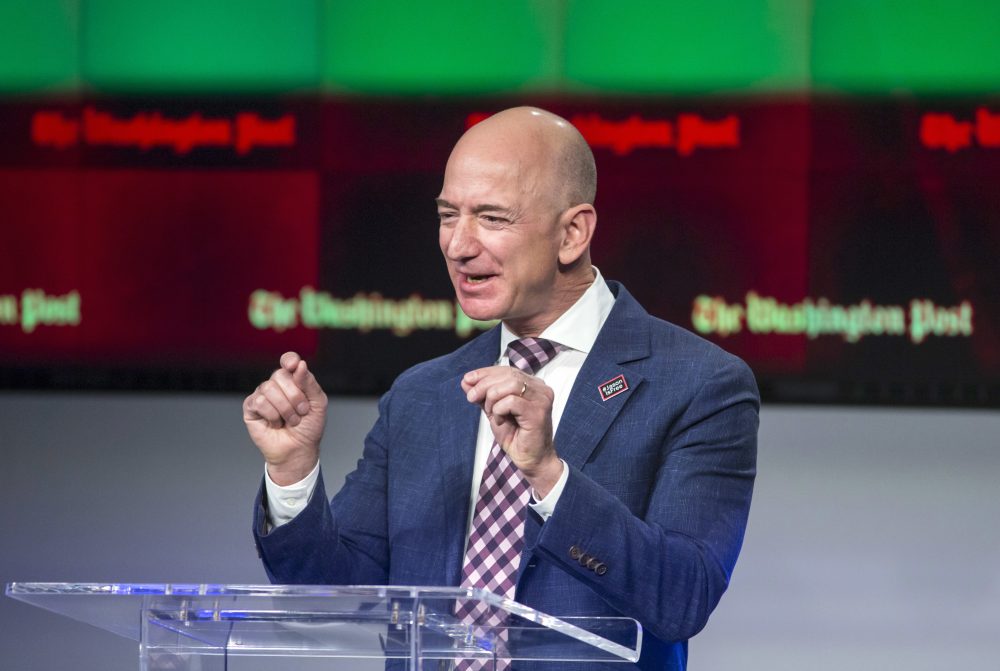Advertisement
Commentary
Why Massachusetts Shouldn’t Play 'Let’s Make A Deal' With Amazon

In capitalist theory, businesses fly or flop on their merits as they compete in the free market. Of course, life doesn’t always conform to theory. How many businesspeople sing hosannas to the free market when it means they’re free from public regulation, then become socialists to make Marx blush when demanding public welfare?
Which brings us to Amazon’s prospective pig-out at the public trough. From my home state of New Jersey to my adopted state of Massachusetts, politicians are drooling rivers, and offering rivers of tax breaks and other incentives, to lure the online retailer’s second North American headquarters to town, with its potential 50,000 jobs.
This political version of "Let’s Make A Deal" is not just unseemly, it’s dumb. “It’s a $150 billion company that’s coming to a cash-strapped state, asking for a handout,” former Massachusetts gubernatorial candidate Evan Falchuk says of his state’s promised incentives package.
Others have called for a federal ban on these bidding wars, forcing cities and states to stand down.
As a capitalist, I admire Amazon founder Jeff Bezos’ brilliance and, like everyone else on the planet, I’ve patronized his company. I also get that 50,000 jobs are nothing to sniff at. But true capitalists also believe well-run firms don’t need corporate welfare; indeed, how sustainable are jobs if they depend on fickle public subsidies rather than market demand for the work?

Amazon knows that, which is the first of a few observations that those duped by this legalized heist might have overlooked:
1. Unless you fell off the Kindle truck yesterday, you understand Amazon probably knows already where it wants to build, meaning the winning jurisdiction will squander resources on a headquarters it would have gotten anyway, argues a Brookings Institution analyst.
By this reasoning, the company will shun Canada to pacify our "America First" president and like-minded customers; will build in the eastern or central time zone to more easily manage its overseas operations; and will favor a city with pro-business leaders. Add in the other things on Amazon’s relocation Christmas list — good schools, a nearby international airport — and you’ve whittled the possibilities to perhaps three sites, the Brookings guy says. The “illusion of a competition” is a cunning move to sweeten the winning bid.
2. Those 50,000 jobs sound great. But Massachusetts shows that job promises can pop like a microwaved bag of Orville Redenbacher’s.
Advertisement
After Boston and the state coughed up $150 million to recruit General Electric last year, the company announced a two-year delay in its opening. The 800 promised jobs? Scaled back, likely, in coming corporate cost-cutting.
It’s hardly the first time the state has been disappointed. The Boston Globe’s Jeff Jacoby cites a study finding that 95 percent of the biotech jobs former Gov. Deval Patrick forecast from the state’s generous subsidies never happened.
3. Massachusetts is not alone in having been burned by this public sector version of corporate recruiting. A 2012 New York Times expose of companies that pocketed $80 billion in giveaways annually found that several closed facilities during the Great Recession.
Even when these are real rather than phantom jobs, the bloated incentives package a city or state must pay for them “wastes a lot of money on a microscopic fraction of employees,” a taxpayer watchdog told The Economist magazine.
...how sustainable are jobs if they depend on fickle public subsidies rather than market demand for the work?
Better, he said, for those dollars to be spent either on real job magnets (good schools, infrastructure and the like that benefit every employer) or on fixing obvious market failures (such as locating healthy food stores in poor neighborhoods without them).
4. It’s logical to assume, given the big sums involved, that we have conclusive evidence that fishing with economic incentives reels in jobs.
Logical, and wrong.
“We simply do not know the answer,” concluded a meta-analysis of research into the question. The reason to doubt incentives’ effectiveness is simple, the authors wrote: While they carve a crater in givers’ budgets, they’re chump change to recipients. “Typically, a firm’s wage bill will be much greater than its tax bill; for the average manufacturing firm in the U.S., payroll is about 11 times the firm’s state and local taxes before incentives.”
Jacoby’s fellow columnist Dante Ramos, who’d love to get Amazon to Boston, noted, “The value of any financial concessions Amazon might extract from its new capital to the east look[s] like a rounding error against Bezos’ personal fortune — and especially against Amazon’s projected revenues over the next couple decades.” Ramos advocates a Beantown bid heavy on things like improved transportation that would benefit many people besides the company.
Those are things the state Legislature won’t pay for without the kick in the seat that Amazon’s coming would provide, Globe business writer Shirley Leung argues. But at Bezos’ demanded price, we’d have to administer said kick while shod in Guccis. From a cost-benefit perspective, it would be cheaper to elect smarter legislators.
